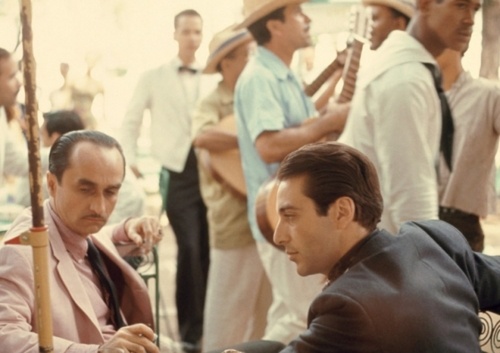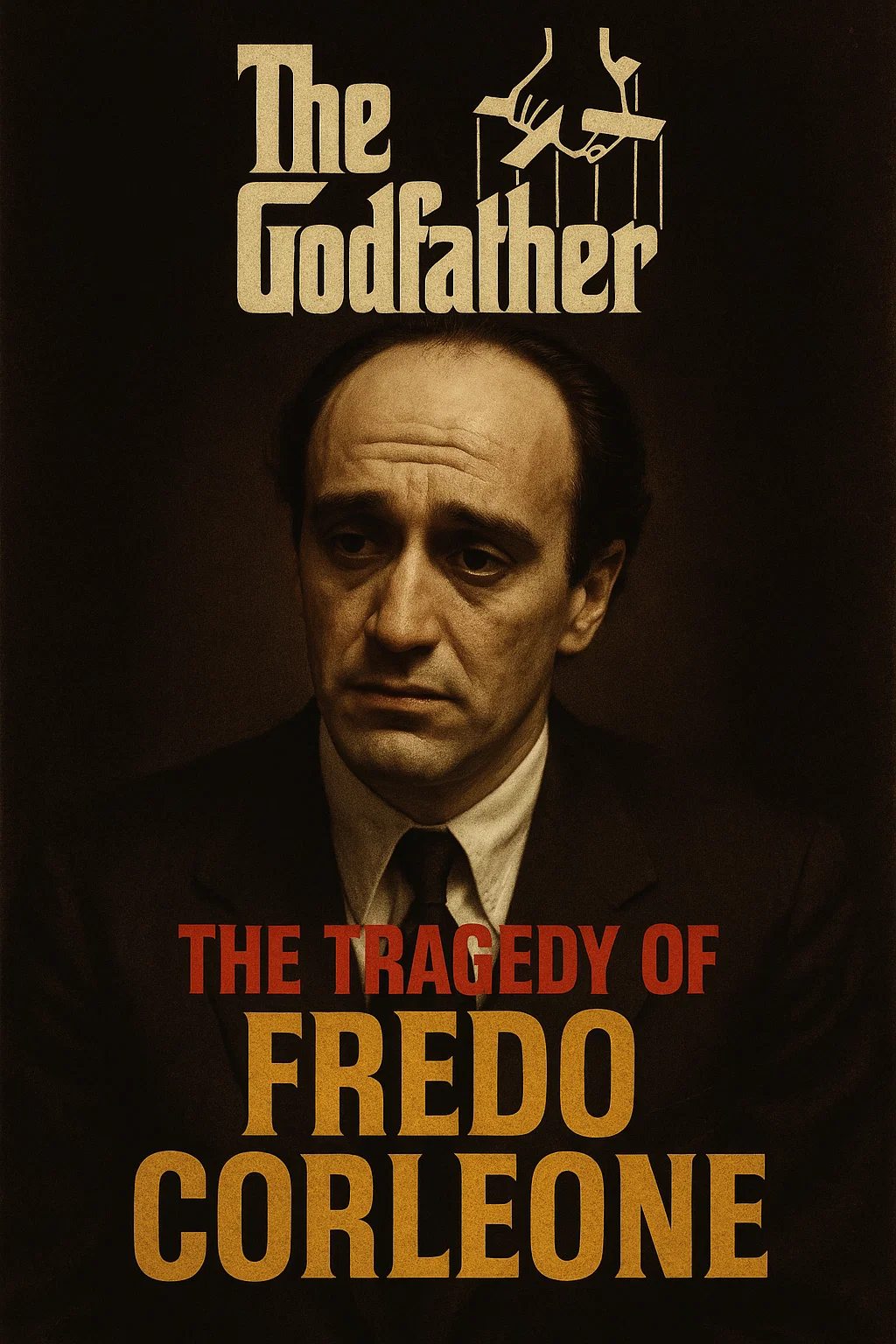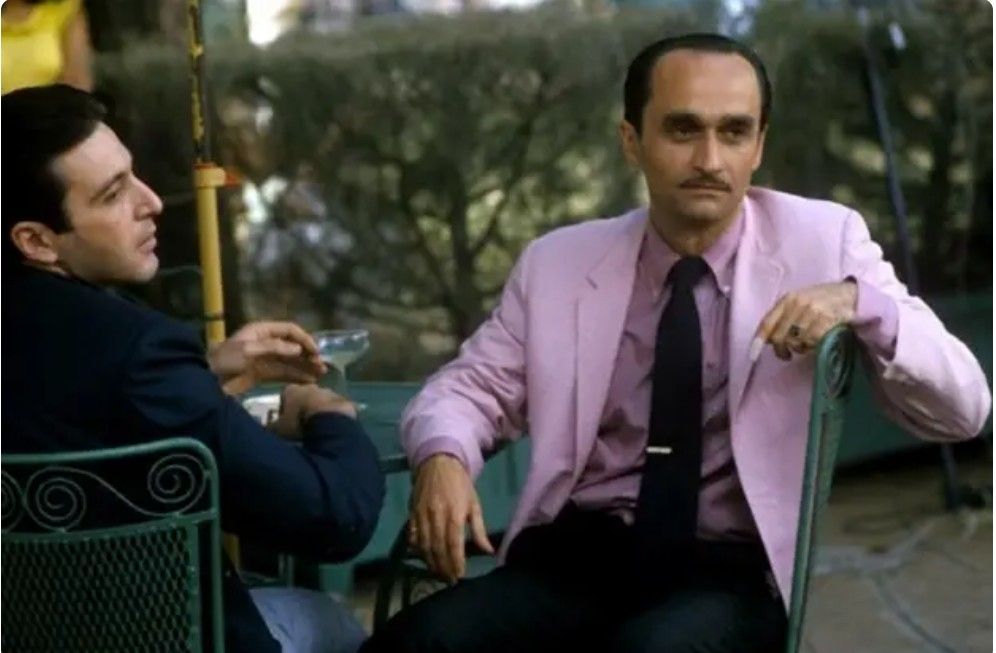
In The Godfather and especially The Godfather Part II, the tragedy of Fredo Corleone stands as one of the most painful and haunting moments of the trilogy. If Michael Corleone embodies the transformation from an idealistic man into a cold-blooded dictator, then Fredo represents another kind of tragedy: the weak link within a powerful family, a man desperate for recognition who ultimately turns to betrayal—and pays the price with his life at the hands of his own brother.
The forgotten middle son
Fredo is the second son of Don Vito Corleone. From the beginning, he lacked the strength of Sonny or the cold intellect of Michael. In many scenes, Fredo appears clumsy, timid, or even laughable.
In a mafia family where strength, wit, and authority determine survival, Fredo becomes the “leftover.” He is neither strong enough to lead nor respected enough to be trusted. This sense of being undervalued planted in him a deep insecurity—one that would later bloom into betrayal.

Insecurity and the hunger for recognition
Fredo’s tragedy is not rooted in cruelty, but in weakness. He loved his family, yet he always felt like an outsider in it. When Michael—the youngest son who was never meant to enter the mafia world—was chosen to succeed Don Vito, Fredo felt humiliated.
In his most memorable outburst, he cries:
“I’m your older brother, Mike, and I was stepped over.”
This line is not merely an expression of jealousy; it is a confession of a lifelong wound. Fredo betrayed not for wealth or ambition alone, but because he wanted to prove that he was not useless. His betrayal was born of desperation to be recognized.
Betrayal – the most painful wound
In The Godfather Part II, Fredo secretly aligns himself with Johnny Ola and Hyman Roth—enemies of Michael. Though Fredo does not wield the knife himself, his leaking of information almost destroys the Corleone family and nearly costs Michael his life.
When Michael finally confronts him, he embraces Fredo and whispers the immortal words:
“I know it was you, Fredo. You broke my heart.”
This line is the culmination of the Corleone tragedy: betrayal not from an enemy, but from a brother. It is a wound deeper than any inflicted by rivals.

The tragedy of weakness
What makes Fredo unique is that he is not a conventional villain. He is not ruthless like the family’s adversaries, nor cunningly ambitious. Instead, he is a fragile man, easily manipulated. Too naïve to foresee consequences, too weak to resist temptation.
This makes Fredo’s betrayal more tragic than malicious. The audience feels anger at his actions, but also pity for a man who was lost within his own family, whose desperate need for validation led him down a path of no return.
Death and Michael’s corruption
In the end, Michael orders Fredo’s execution. The image of Fredo praying on the boat before being killed is one of cinema’s most haunting moments.
His death is not only punishment for betrayal, but also a turning point in Michael’s journey. By choosing power over blood, Michael shows that in the mafia world, betrayal—no matter who commits it—must be answered with death. If in Part I he declared, “Family is everything,” then in Part II he proves that survival of the empire outweighs even brotherhood.
Meaning beyond the film
Fredo’s story resonates beyond the narrative of a crime saga. It reflects universal human struggles:
- The longing for recognition: Every person seeks validation; being denied it can lead to ruin.
- The danger of weakness: In a ruthless world, weakness may be more destructive than cruelty.
- Family and power: The film asks whether genuine familial love can survive when power and survival dictate every relationship.
Conclusion
Fredo Corleone may not be the central figure of The Godfather, but his betrayal and death form one of the trilogy’s most emotional climaxes. He is both traitor and victim—a victim of his own weakness, his insecurity, and a world where kinship is constantly tested by ambition.
His tragedy reminds us that the deepest betrayals often come not from enemies, but from those closest to us. And through Fredo’s story, The Godfather transcends its mafia backdrop to become a tale of family, betrayal, and the fragile nature of human dignity.